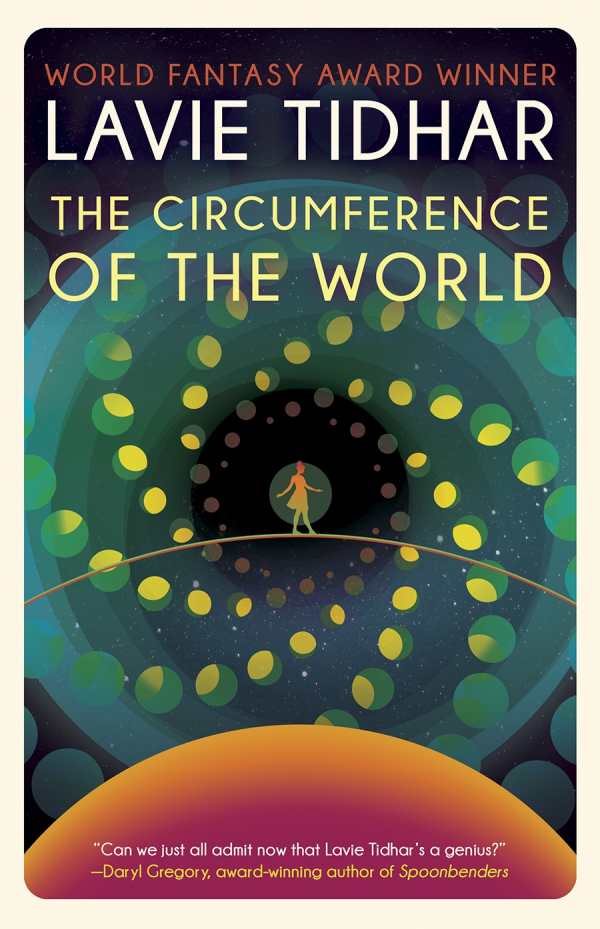The Circumference of the World
Black holes, new religions, and powerful stories ensnare orbiting beings with their intrigue and potentiality in Lavie Tidhar’s science fiction marvel The Circumference of the World.
In the loneliness of his youth, Eugene Hartley looked into the stars and began his story: “Once there was a man who fell into the eye of God.” The shadows of his childhood followed him to war in the South Pacific. And he became a famed pulp author—a science fiction dilettante, cashing fat checks and partying with Jack Parsons and Robert Heinlein. Still, he felt watched; he could not forget the eye of God.
In a time far past Hartley’s glory days, Delia––a mathematician born on the South Pacific island where Hartley stared into the stars and felt fear, and who shares a name with Hartley’s most elusive heroine—discovers that her husband, Levi, is missing. He was obsessed with a Hartley novel, Lode Stars, that most people believe doesn’t exist; the book is rumored to make those who read it disappear. Thus Delia taps Daniel, a pulp bookseller with selective prosopagnosia, to find Levi. Instead, Daniel encounters a Russian mobster who’s also searching for Lode Stars.
Told in six parts, the book moves between Hartley’s novel fragments, memories, the gossipy letters of science fiction greats, Daniel’s bumbling investigation, and Delia’s paused tale, generating wonder with each turn. It might involve time travel. It might reveal that the universe is a simulacrum, made up of memories from the ancient past. Or its mysteries might be sleight of hand—because Hartley also began a religion on a lark, with Lode Stars as its holy text, and Delia’s wouldn’t be the first brilliant mind to be fooled.
Inquisitive, daring, and rich with possibilities, The Circumference of the World is a speculative masterpiece.
Reviewed by
Michelle Anne Schingler
Disclosure: This article is not an endorsement, but a review. The publisher of this book provided free copies of the book to have their book reviewed by a professional reviewer. No fee was paid by the publisher for this review. Foreword Reviews only recommends books that we love. Foreword Magazine, Inc. is disclosing this in accordance with the Federal Trade Commission’s 16 CFR, Part 255.

